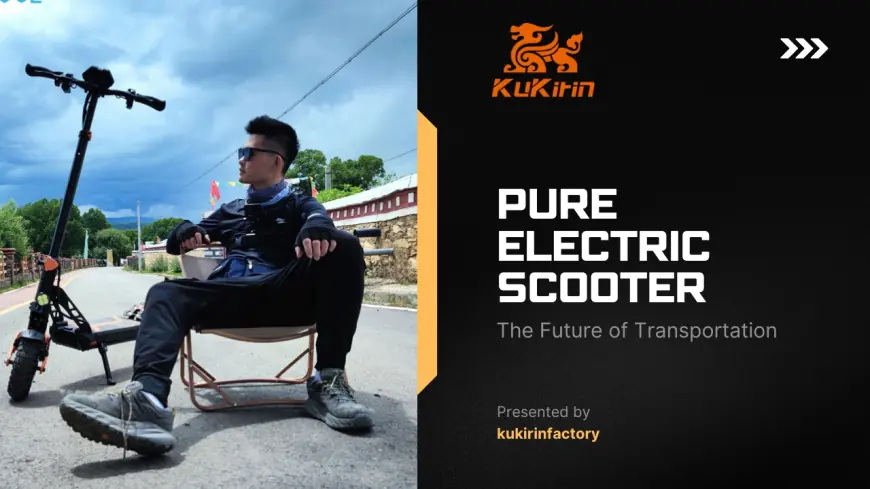Pure Electric Scooter: The Ultimate Guide
Pure Electric Scooter

The world is rapidly shifting toward sustainable solutions, and the Pure Electric Scooter stands at the forefront of this transformation. As fuel prices rise, environmental concerns grow, and cities become more congested, electric scooters are emerging as a clean, cost-effective, and fun way to travel. Whether you’re a daily commuter, an eco-conscious traveler, or someone seeking a modern, stylish ride, understanding what makes Pure Electric Scooters unique will help you make an informed decision.
In this detailed guide, we’ll cover everything from what a Pure Electric Scooter is and why it’s gaining popularity to performance specs, pricing, maintenance, and top buying tips.
What is a Pure Electric Scooter?
A Pure Electric Scooter is a battery-powered two-wheeled vehicle designed for city commuting and short to medium-distance travel. Unlike traditional petrol scooters, it uses an electric motor and rechargeable lithium-ion battery, producing zero tailpipe emissions.
Key attributes include:
- Eco-friendly travel — No harmful exhaust gases.
- Quiet performance — Minimal noise pollution.
- Cost savings — Significantly lower running costs than petrol scooters.
- Low maintenance — Fewer moving parts compared to combustion engines.
Why Choose a Pure Electric Scooter in 2025?
Environmental Benefits
Switching to an electric scooter helps reduce carbon footprint, conserve non-renewable fuel resources, and improve air quality in urban areas.
Cost Efficiency
Electric scooters can be charged for a fraction of the cost of fueling with petrol. In most regions, charging costs are 70–80% cheaper than fueling a traditional scooter.
Government Incentives
Many countries offer tax credits, subsidies, or grants for electric scooter purchases, making them more affordable than ever.
Urban Convenience
- Easy parking
- Compact size for weaving through traffic
- Suitable for crowded city environments
Core Features of a Pure Electric Scooter
When shopping for a Pure Electric Scooter, these are the main features to consider:
| Feature | Description |
|---|---|
| Battery Capacity | Measured in Wh or Ah; higher capacity = longer range. |
| Motor Power | Determines acceleration and climbing ability. Commonly ranges from 250W–4kW. |
| Range per Charge | Most models offer 25–100 km per charge, depending on capacity and usage. |
| Charging Time | 3–8 hours; fast charging tech is becoming more common. |
| Top Speed | Ranges from 25 km/h (city-legal) to 80+ km/h for performance models. |
| Weight Limit | Check manufacturer specs to match rider and load needs. |
| Portability | Some models fold for easier storage and transport. |
Popular Pure Electric Scooter Models in 2025
While the Pure brand itself has gained attention, several key models dominate the market due to performance and reliability:
- Pure Air³ Pro+ — Rain-resistant design, long-range battery, USB charging port.
- Pure Flexx — Compact, foldable, and suitable for last-mile commuting.
- Pure Advance+ — Higher speed and torque for extended city rides.
Performance and Riding Experience
A high-quality Pure Electric Scooter offers a smooth, almost silent ride. Key performance factors include:
- Acceleration: Immediate torque makes starting from stops effortless.
- Handling: Lightweight construction improves maneuverability.
- Suspension: Some models feature advanced shock absorbers for rough terrain.
- Braking: Modern e-scooters have regenerative braking, returning power to the battery.Charging your Pure Electric Scooter
Home Charging: Most riders charge their scooters overnight with a standard plug.
Public Charging: Growing infrastructure with EV charging points in urban areas.
Battery Life: Lithium-ion batteries last 500–1000 cycles before performance degradation.
Maintenance Tips for Longevity
Electric scooters require less maintenance than petrol models, but regular care ensures long-term performance:
- Check tire pressure every week.
- Inspect brakes regularly.
- Clean and lubricate moving parts.
- Avoid deep discharges of the battery to extend lifespan.
Cost Breakdown: Pure Electric Scooter Ownership
| Expense | Petrol Scooter | Pure Electric Scooter |
|---|---|---|
| Fuel / Energy Cost | High (per km) | Low (per km) |
| Maintenance | Frequent servicing | Minimal servicing |
| Tax & Registration | Standard | Often reduced/free |
| Insurance | Higher | Often lower |
Over 3 years, the savings on fuel and maintenance can exceed 50% for an electric scooter owner.
Buying Guide: How to Choose the Right Pure Electric Scooter
Step 1: Assess Your Commute
Calculate your daily range requirements. Always choose a scooter with at least 20% more range than your needs.
Step 2: Check Local Regulations
Top speeds and licensing requirements vary by country.
Step 3: Compare Battery and Motor Specs
Look for a balance between long range and sufficient speed for safety.
Step 4: Test Ride
Ensure comfort, braking quality, and handling match your preferences.
Future of Pure Electric Scooters
In the next few years, expect
- Longer ranges with advanced battery chemistry
- Faster charging technologies
- Integration with smart city transport systems
- Solar-powered charging solutions
Urban transport is moving toward connected, sustainable, and pollution-free systems, and Pure Electric Scooters will play a central role.
Conclusion
The Pure Electric Scooter is more than just a modern commuting option — it’s a statement about sustainability, cost-efficiency, and embracing the future of transportation. With rapid technological advancements, attractive government incentives, and an increasing commitment to greener living, now is the perfect time to make the switch.
Whether you value eco-friendliness, low ownership costs, easy riding, or just the fun of zipping through city streets, the Pure Electric Scooter delivers on all fronts.
What's Your Reaction?
 Like
0
Like
0
 Dislike
0
Dislike
0
 Love
0
Love
0
 Funny
0
Funny
0
 Angry
0
Angry
0
 Sad
0
Sad
0
 Wow
0
Wow
0


















































